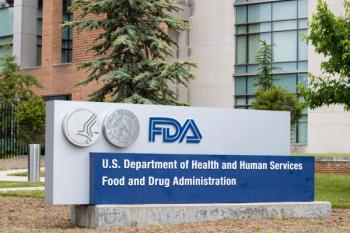
How the Inflation Reduction Act May Affect Biosimilars
Several provisions in the law are designed to protect and foster the biosimilar market. But some representatives of the sector see CMS drug price negotiation as a threat to profit margins.
It’s an open question whether the Inflation Reduction Act (IRA) will be good or bad for biosimilars.
Associations of manufacturers who produce both reference drugs and biosimilars contend that allowing CMS to negotiate reference drug prices for the Medicare program could undermine prices that biosimilar manufacturers count on to earn a return on their investment.
But backer of the legislation, which President Joe Biden signed into law on Aug. 16, say that biosimilar market will be well protected and even fostered. They point to the provisions that are designed to incentivize doctors to prescribe biosimilars by paying them an add-on fee of 8% of the average sales price (ASP) of the reference drug in addition to the cost of the biosimilar, a 2-percentage point increase from the current 6% add-on. The change becomes effective October 1, 2022.
Also, CMS doesn’t have free rein to negotiate drug prices. The IRA limits negotiation to drugs for which there are no biosimilars currently on the market and none expected to come on the market in the next two years
Furthemore if manufacturers of reference drugs manage to delay biosimilar entry beyond that two-year window, they won’t be allowed to delay price negotiations and they may have to pay money back to Medicare.
These provisions of the IRA are intended to ensure that biosimilars work their free-market magic by competing on price with expensive biologics.
Based on the terms of the IRA, Humira (adalimumab), a drug for rheumatoid arthritis and other autoimmune diseases, will not see forced negotiation with Medicare because biosimilars are anticipated to reach market starting about three and a half months from now, in January of next year
Amgen’s Enbrel (etanercept), another top-selling autoimmune product, could see Medicare price negotiation and other restrictions under the IRA. Enbrel will have had roughly 30 years of exclusivity by the time its key patents expire in 2029 and FDA-approved biosimilars can enter the US market.
Any biologics that have been on the market for at least 13 years will be subject to negotiation, starting in 2026 for Medicare Part D drugs and 2028 for Part B drugs. Enbrel is covered under Part D.
Starting in 2023, however, the IRA imposes inflation caps that could also affect Enbrel. Amgen has long faced criticism for raising the price of this drug well in excess of inflation. This also has been the case in 2022, when Amgen raised the price of Enbrel 9.4%, above the 9.1% rate of inflation. From 2019 to 2020, half of drugs reimbursed by Medicare had price increases that
The IRA will penalize manufacturers who raise the price of their drugs above the inflation rate by forcing them to rebate that excess cost.
The IRA will phase in negotiation slowly, so Medicare will go after just the top-selling drugs at first to maximize potential savings. Despite that slow pace, Medicare is anticipating savings of 25% to 65% on drugs selected for negotiation.
Eylea (aflibercept) is a top-selling Part B drug for macular degeneration that has yet to face biosimilar competition, so it could become a target for negotiation. Eylea’s 2022 estimated sales top $6 billion.
So far in the United States, there are biosimilars marketed for just nine types of biologics, so in the biologics category is wide open for reference drug negotiations.
Newsletter
Get the latest industry news, event updates, and more from Managed healthcare Executive.























